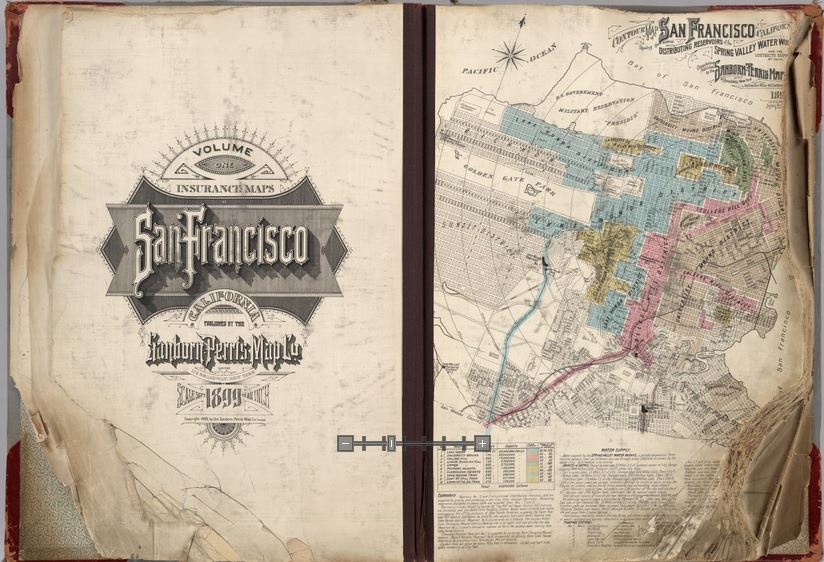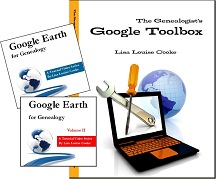NGS and FGS Announce Merger
There’s big news regarding the two leading national genealogical organizations in the United States. I’ve got the press release from the Federation of Genealogical Societies here, as well as comments from FamilySearch.

NGS and FGS ANNOUNCE INTENT TO MERGE
August 21, 2019 – Washington, D.C.
In a historic move, the boards of the National Genealogical Society (NGS) and the Federation of Genealogical Societies (FGS) announced today their intent to merge.
The two organizations, both non-profit leaders in the dynamic genealogy industry, will form one consolidated group that will continue to operate as the National Genealogical Society. Both boards approved a Memorandum of Understanding (MOU) earlier this week, and jointly announced the news at the Opening Session of the FGS Family History Conference in Washington, D.C. this morning.
Leaders of both organizations believe this merger will serve the genealogy community by improving support of both individual members and societies in the pursuit of genealogical excellence.
The organizational structure of NGS will be modified to increase functions that support genealogical societies and family organizations.

NGS Annual Conference
Digitization projects of genealogical importance such as the War of 1812 pensions will continue.
The two organizations will continue to operate independently while all details of the merger are completed, no later than October 1, 2020.
Faye Stallings, President of FGS, said: “We are excited about this opportunity to combine with a premier organization that has been in operation since 1903. This will allow for improved and expanded services to help support societies.”
Ben Spratling, President of the NGS, commented, “We look forward to continuing the strong legacy of FGS as a ‘gathering point’ for family historians and societies all across the nation.”
According to FamiySearch, “this significant, historical move will consolidate these two great, influential organizations in the genealogy industry, into one with greater capacity to serve the genealogy community. You can read more about it in their press release published in concert with the opening session of the FGS Conference today in Washington, D.C.”
David Rencher, FamilySearch CGO, said “this is a significant move forward for both organizations. FGS has wanted to better serve individuals, and NGS has been seeking ways to better serve societies. Combining their efforts is a win/win for all genealogists at the local, state and international levels. FamilySearch is thrilled with the leadership of both organizations coming together to better serve all genealogists and family historians.”

Podcasting at the Genealogy Gems booth at the FGS 2018 conference
About FGS: FGS was founded in 1976 and empowers the genealogical and family history community, especially its societies and organizations, by advocating for the preservation of records and providing resources that enable genealogical organizations to succeed in pursuing their missions.
FGS launched the Preserve the Pensions project in 2010 and raised more than $3 million to digitize and make freely available the pension files from the War of 1812. Fundraising was completed for that project in 2016 and the digitization continues.
FGS was also the driving force behind the Civil War Soldiers and Sailors project alongside the National Parks Service.
Want to Help Index De-Classified CIA Records?
 By now, many of us have tried our hand at volunteer indexing and transcribing projects. We can index censuses, civil and church vital records, gravestone images, and more with FamilySearch, BillionGraves, Ancestry’s World Archives Project and even with individual archives like The Congregational Library.
By now, many of us have tried our hand at volunteer indexing and transcribing projects. We can index censuses, civil and church vital records, gravestone images, and more with FamilySearch, BillionGraves, Ancestry’s World Archives Project and even with individual archives like The Congregational Library.
What about de-classified CIA records and other government documents? Love letters between President Lyndon and Lady Bird Johnson? These are among the indexing projects currently on the National Archives (US) Citizen Archivist dashboard.
“We have millions of pages of digitized records available in our online catalog,” says the Citizen Archivist website. “Transcription is an important way for us to improve search results and increase accessibility to our historical records. Your contributions make a big impact.” Other current projects include Confederate government papers, interviews relating to the September 11 terrorist attacks and letters to President Eisenhower about integrating schools.
These are all historically vital important records for the U.S. that may also shed light on our ancestors’ lives. My grandfather worked on classified government projects and I’m hoping to find his name in formerly “top secret” papers someday! Why not give it a try–index a batch of records through the National Archives Citizen Archivist project?
 Learn more about inspiring genealogy volunteers on our blog! On the lower left side of the Genealogy Gems home page, click the category “Volunteer.” See what others do to help–and perhaps you’ll get inspired yourself!
Learn more about inspiring genealogy volunteers on our blog! On the lower left side of the Genealogy Gems home page, click the category “Volunteer.” See what others do to help–and perhaps you’ll get inspired yourself!
Online Historical Maps: From David Rumsey to the DPLA

Opening pages of rare 1905 Sanborn Map of San Francisco, showing city just before 1906 earthquake. Find the entire map book at the David Rumsey Historical Map Collection
Genealogists rely on historical maps to help us navigate the geography of our ancestors’ lives. One of the most important resources available online is the David Rumsey Map Collection. Well, Rumsey recently announced on his website that he will be making more than 38,000 of his historical maps–everything he’s currently got online–available at the Digital Public Library of America (DPLA).
I blogged recently about the DPLA, which aims to create an enormous, free digital library we can all access online. It will be great to have the Rumsey map collection searchable on the DPLA so we can search these maps while we look for any other sources on any particular location our ancestors lived. “Maps tell stories that complement texts, images, and other resources found in the growing DPLA library,” says Rumsey. “And the open content policies of my online library fit perfectly with DPLA’s mission to make cultural resources freely available to all.” He applauds what the DPLA is trying to accomplish and even encourages other collectors to donate content.
Rumsey has spent years collecting thousands of old maps and putting them online. Now he’s working to share them even more widely. His entire collection of about 150,000 maps will eventually be housed at Stanford University. Meanwhile, we can all enjoy the thousands of images we can search on his site or at the DPLA.
Google’s free program Google Earth includes nearly 150 historic maps in the Layers panel. You can also add historic maps downloaded from Rumsey’s site to Google Earth by using the Overlay feature. My video tutorial series called Google Earth for Genealogy will show you how. You can also get step-by-step instructions in my book The Genealogist’s Google Toolbox. Or get them all in a discounted bundle.
DAR Bible Records Now Online

This decorative marriage certificate and the Births page below come from a Sudweeks family Bible I helped return to the Sudweeks family.
The Daughters of the American Revolution Library (DAR) has a free online collection of searchable records. Its Genealogical Research System allows anyone to search databases of ancestors, descendants, members, its Genealogical Research Committee reports and more. Now it’s added another databases: Bible records.
“DAR collections contain thousands of Bible records from the Family Register sections and other pages,” states a news release from Eric Grundset, DAR Library Director. A new database contains “approximately 30,000 Bible records taken from our Genealogical Records Committee Reports. This is an ongoing project as member volunteers review the GRC database to post more materials found in those nearly 20,000 volumes. As time progresses, we will add other Bible listings from other sources in our collections.
“At the present time, if someone wishes to order copies of a specific Bible record, they will need to contact the DAR Library’s Search Services for copies. We are developing the steps for the ordering of pdfs of all of the DAR Bible records for online ordering in the near future. Documentation that is less than 100 years old is restricted for privacy reasons.”
 Family Bibles in years past served as a family’s private vital records registry, where the names, births, marriages and deaths of loved ones were inscribed. A Bible record may be the only place to find some of those, especially for the distant past and for children who died young. But it’s also the most intimate kind of vital record to find, a family’s log of its own kin.
Family Bibles in years past served as a family’s private vital records registry, where the names, births, marriages and deaths of loved ones were inscribed. A Bible record may be the only place to find some of those, especially for the distant past and for children who died young. But it’s also the most intimate kind of vital record to find, a family’s log of its own kin.
Grundset reminds us that “DAR Collections are not limited to the period of the American Revolution or to the families of DAR members.”
